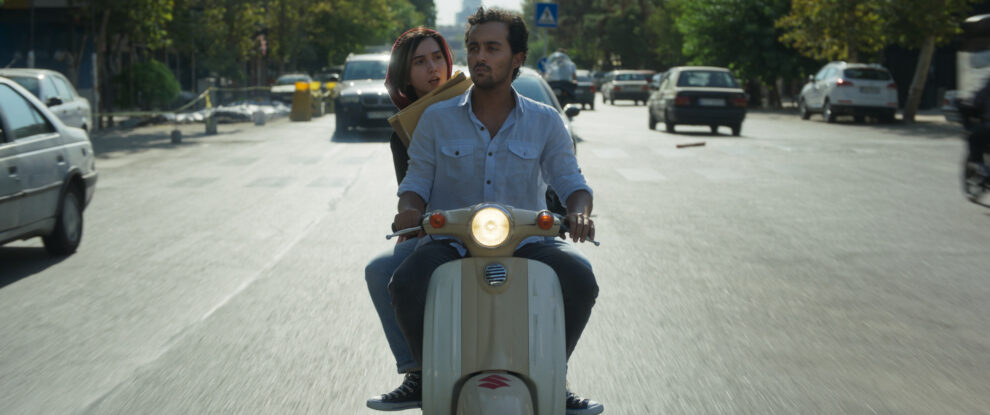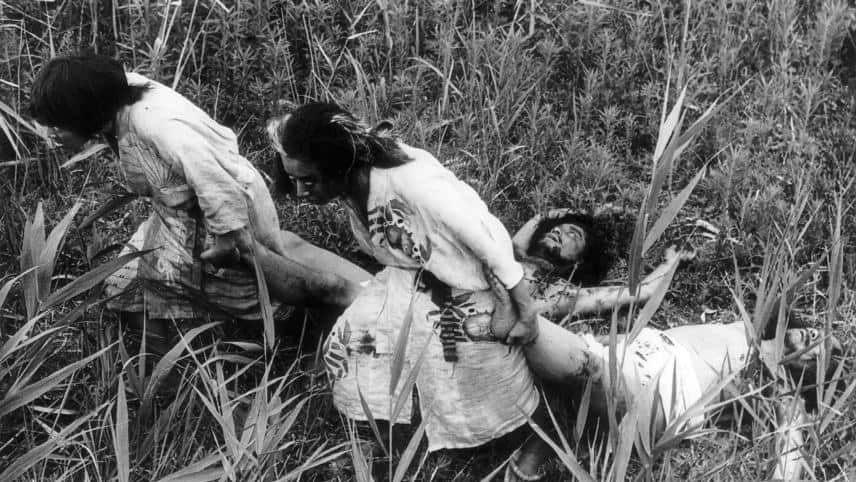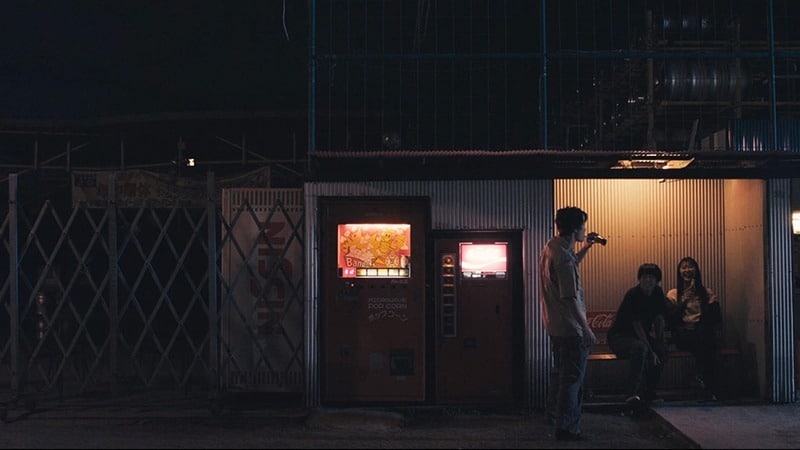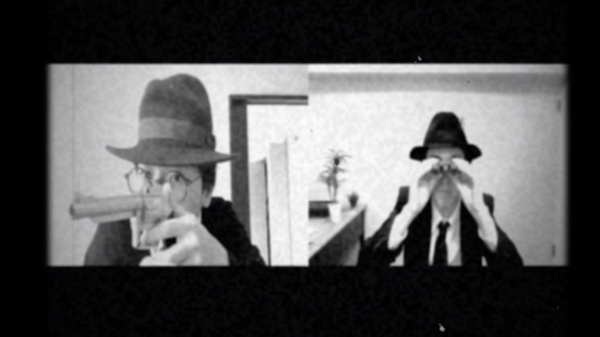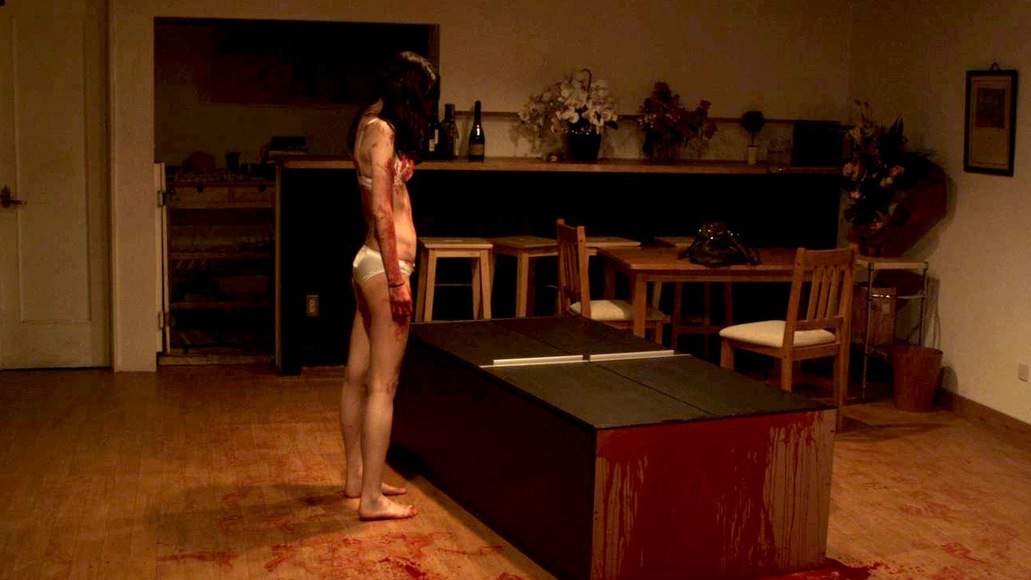Winner of the Best Actor Award for Yasna Mirtahmasb in Tokyo, where it premiered, “Roxana” is a very interesting amalgam of a film, focusing on entertaining while presenting a number of comments regarding Iran nowadays, until, unfortunately it doesn't. Let us take things from the beginning, though.
Roxana screened at Red Sea Film Festival

Fred is a 23-year-old unemployed man, who lives with his essentially senile mother, while spending his time hanging with his best and only friend, Mansour, or gambling at a snooker illegal parlor. Roxana is a young photographer mostly dealing with filming weddings, and in general, a woman who seems in control of her life, despite the fact that when the two meet, she has just had her handbag stolen, including an hd disc with the material from her last work. Fred is immediately smitten by her, and decides to help her, which eventually leads Roxana to hire him as an assistant. One of the packages she offers to customers, however, includes her bringing alcohol to their parties, which eventually leads to the first major issue the two face. Soon, it becomes evident that this will not be the only case. In the meantime, Mansour also comes closer to Roxana's cousin.
Through an approach that moves somewhere between the romantic comedy and the fable, particularly due to the episodic nature of the narrative, Parviz Shahbazi comes up with a film that is essentially about Iran, apart from anything else, with the overwhelming majority of episodes moving towards this path. The treatment of Fred's mother, both by her children and the country's welfare is an indicative one, but the director also deals with how the police functions, the judicial system, employment, particularly for youths, money sanctions towards Iran, illegal betting, marriage, and in general, a plethora of the crucial elements of how the Iranian system functions. The catalyst for all these is definitely Roxana, who emerges as a magnet for disaster repeatedly, as much as a type of femme fatale for Fred, who is willing to sacrifice himself for the feelings he has for her, even though her reciprocation is by no means equal.
Check the interview with the director and actor
And although the directorial approach could easily become (melo) dramatic, or even tragic, Shahbazi retains a sense of humor throughout the movie, with the episodes presented in a way that is bound to make any viewer laugh. Particularly Fred's “adventures” with the policeman and his relationship with Mansour are hilarious to watch, in one of the central aspects of the narrative, that is also the main source of entertainment the film offers.
This element benefits the most by Yasna Mirtahmasb's acting as Fred, whose delivery of the deadpan style of humor here is among the best traits of the movie, in an anchoring performance that carries the whole thing from beginning to almost the end. Rambod Motalebi as Mansour comes right after, with his interactions with Roxana's cousin and Fred offering some of the most memorable moments here. Gorgeous Mahsa Akbarabadi as Roxana presents her character's enigmatic persona convincingly, in one of those individuals that are met in all societies, who are essentially trouble and try to hide it in every way they can.
DP Pouya Shahbazi (the director's son actually) captures the plethora of events that take place in the movie with a realism that borders on the documentary, while also including some very intriguing scenes visually, as the majority of the ones taking place in the atelier.
And while the narrative progresses smoothly until close to the end, what happens in the finale is probably the most problematic aspect of the movie, with Shahbazi taking a turn towards the intensely dramatic in a way that appears quite disconnected from the rest of the narrative. This element was probably meant as a twist whose purpose was to shock, but in the end, it does not work at all, even as a comment regarding crime and punishment or even as one on how love is almost impossible to bloom in such a setting. Its individual presentation is not bad, but the fact remains, that as a part of the whole, it definitely does not make sense, also due to the tragicomical approach the movie followed up to that point. This aspect is definitely a problem of Shahbazi's own editing, both for its placement within the story and the transition from the rest of the narrative approach. On the other hand, the overall pace, which results in a relatively fast tempo, works quite well for the film and its episodic approach.
“Roxana” has a lot of merits, both for its comments and acting, but its ending definitely decreases its impact, resulting in a movie that is entertaining to watch, but will probably be easily forgotten.


